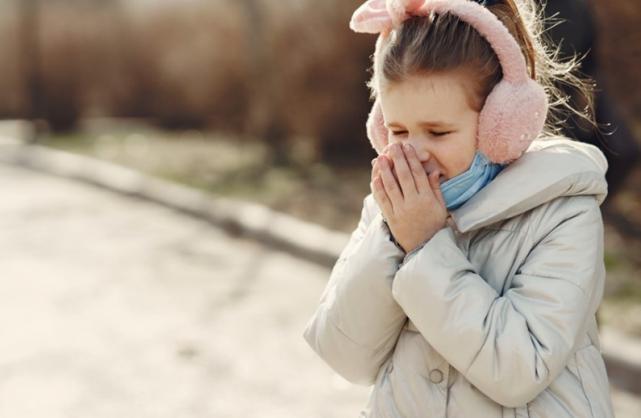We all know that children pick up infections like colds, flu, sore throats, and ear infections more easily than adults. This can make this time of year worrying for parents of young children and teenagers. One little sniffle and we’re on high alert, watching for any signs of colds and flu. And with COVID, we are understandably more wary than ever.
Getting ill is a regular part of life so we want to know what we can do to protect our kids from exposure to infections and to help them get well when they do get sick.
The HSE’s Dr. Nuala O’Connor is the Antibiotic Resistance Lead for the Irish College of General Practitioners and she hopped onto the HSE’s stories on Instagram recently to answer some of parents’ most common questions about everyday illnesses and keeping well through the winter.
Dr. Nuala has lots of advice here on common illnesses, but if you’re unsure of what to do before contacting a GP, see mychild.ie or undertheweather.ie for more useful information and practical tips about what to do when your child is sick.
Q1. How do I stop my child from getting sick this winter?
Dr. Nuala: ‘I think many parents dread this time of year. Some children seem to pick up everything that’s going if they’re in a crèche or school. However, we all know now from COVID how viruses are actually transmitted. They tend to get on our hands and into our system via the nose, eyes and mouth.
‘So with kids you have to explain to them and keep emphasising to them the importance of washing their hands, keeping their hands away from their face, and to cover their cough or sneeze by sneezing into their elbows or a tissue.
‘If we can teach all of our children to do that on a regular basis, that’s going to reduce everyone’s risk of spreading illnesses.’
Tonsillitis, sore throats and earaches were common concerns raised by parents.
Q2. How do I treat recurrent tonsillitis without antibiotics?
Dr. Nuala: ‘Most tonsillitis is caused by viruses, so antibiotics can’t actually treat it. The symptoms of tonsillitis, which are usually pain, fever and difficulty swallowing are best treated by taking paracetamol or ibuprofen, plenty of fluids and lots of rest. Glandular fever is another viral cause of tonsillitis and it can be quite severe in teenagers.
‘Even for recurrent tonsillitis, it’s most likely that it’s a viral infection, but in older children and teenagers, there is a higher risk that it could be a strep and bacterial infection. So you need to discuss that with your GP.’
Q3. My son gets strep throat every winter – can I cure it with antibiotics?
Dr. Nuala: ‘Many people who get a sore throat every year think it’s a strep infection and that they need antibiotics, but in reality, only a small percentage of sore throats are actually caused by bacteria -strep throat. Take some time out, get plenty of fluids and use paracetamol and ibuprofen for your fever and pain.
‘You can actually get a swab test for a strep throat if you’re concerned. This will help decide if your sore throat is caused by a virus or bacteria. I often use this test especially in recurrent tonsillitis It is available from your GP.”
Q4. Earaches can be very troublesome and lead to many sleepless nights for young children. What can we do about it?
Dr Nuala: ‘Your child is in pain, but we know that antibiotics don’t treat pain. The best way to treat earaches is with paracetamol or ibuprofen. The vast majority of earaches are caused by viruses, not bacteria, so antibiotics won’t have any role in treating them.
‘Sometimes in very young children under the age of two, if there is evidence of infection in both ears, we may cover them with an antibiotic. But again, the best solution is rest, fluids, pain relief and hopefully the earache will pass off in a couple of days.’
It isn’t just parents of younger children who worry about illness at this time of year.
Q5. What to do when your 21 year old is picking up infections?
Dr. Nuala: ‘We’ve all learned from COVID that we pick up infections when somebody coughs or sneezes and the virus gets in through our nose, eyes or mouth. Or more commonly, we get the bugs onto our hands.
‘If we don’t wash our hands before we eat food, we can actually put the virus into our mouth ourselves. So, the best way to prevent your young adult form getting infections every winter is to keep their hands clean and away from their mouth. ‘
Find more information on mychild.ie or undertheweather.ie
If you are concerned about your child, always seek medical advice from you health provider directly.
BROUGHT TO YOU BY








